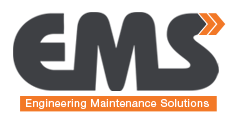An Operator Asset Care programme is based on the principle that the people operating production equipment on a daily basis are the ones most capable of improving equipment reliability and performance.
OAC creates a culture where operators develop ownership of their equipment, and work with maintenance, engineering and management to ensure that equipment operates properly every day.
In a successful OAC programme, the operator performs much, and sometimes all, of the routine autonomous maintenance (AM) tasks.
This is no more evident than in the experience of the author who, when being taken around an assembly plant, was shown vibratory bowl feeders of the latest design, tooled to orientate a small part for easy hand selection.
The expensive feeding tooling had been augmented by a piece of bent card stuck with Sellotape at the end of the track to give the part just that bit extra convenient positioning. The operator had taken the initiative!
To gain the maximum benefit from these programmes MCP suggest it is necessary to observe the following:- TEN TOP TIPS
1. Senior Management support is required
Asset Care programmes require a significant investment in terms of resources, and finance. This support can only come from senior management colleagues. It is therefore essential that they should be made aware of the aim of the programme and results/payback anticipated. Commensurate to this they must be aware the total costs, timescales and up front investment. In short ‘take them with you’
2. Develop an internal vision for OAC
Operator asset care programmes can mean different things to different people who often expect to achieve different outcomes
So it is a key requirement to:
-define what is expected from the programme
-define the scope of the programme
-specify how success is to be measured
3. Communicate
Explain to the workforce what the proposed programme is all about. Define what it will involve. What changes there will be. Explain how the programme will impact on individuals – the benefits for them!
4. Know where you are and what you want to achieve.
Establish current levels of performance in terms of things such as downtime, reliability, waste, availability, or cost. Then set the goals and objectives expected to be achieved from the programme. Finally put in place a measurement system that tracks performance.
5. The Pilot Programme
Start small and learn how to overcome the difficulties you may encounter. Do not select the most difficult area in the factory or indeed the most critical, somewhere in the middle will be just fine. Make sure the people in the selected area are keen to adopt and adapt to different ways and new skills.
6. Define the tasks and skills.
Operator Asset Care is all about individuals taking ownership and driving performance, but not all the tasks and activities that achieve this will become the responsibility of operators. So the first step is to define which tasks and duties the operators will be taking responsibility for. These may include: cleaning, changeovers, set-ups, lubrication, simple maintenance repairs, preventive maintenance, condition checks, filter changes etc.
7. Adopt a horses-for-courses policy
Don’t expect that all operators will have the capability, mechanical aptitude or interest in adding new technical skills. Do not assume everybody is at the same level, so carry out a selection process prior to the start of the OAC programme
8. Train, Train, Train
A successful programme will require those involved to receive training, this should be designed to equip them with the knowledge and skills to meet their new responsibilities.
It will require a Training Needs Analysis as a first step followed by training programmes designed to bridge the gap between the current and future capabilities.
9. Training is not for everyone
Don’t assume that everybody in your plant is a good trainer, just because they are good at operating equipment. Training is a skill in its own right, so don’t leave it to a long serving employee or maintenance engineers with time on their hands. Training programmes and ongoing coaching should be prepared and delivered by the appropriate trainers. If necessary, train your prospective trainers beforehand.
10. Establish an Audit System
The best programmes have set up a process for regular checks to ensure operators are carrying out their new tasks in the defined manner. This is best achieved by use of a simple audit system.
11. OAC is Ongoing…vip
Don’t restrict the programme; provide people with the tools to enable them to continually look for ways to improve. Develop the best staff to take full ownership of the equipment and treat it as their own.
Peter Gagg.
MD of MCP Consulting and Training
Blythe Valley Innovation Centre, Central Boulevard, Blythe Valley Park, Shirley, Solihull. B90 8AJ
Phone: 0121 506 9034
For further information, please email This email address is being protected from spambots. You need JavaScript enabled to view it. or visit http://www.mcpeurope.com/training.aspx
More Editorial
Directory
This website is owned and operated by: MSL Media Limited
Co. Number: 05359182
© 2005 MSL Media Ltd. All rights reserved. E&OE



